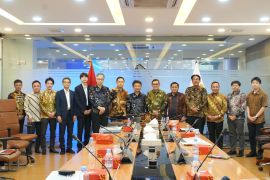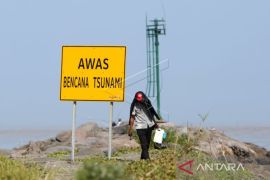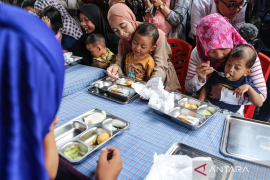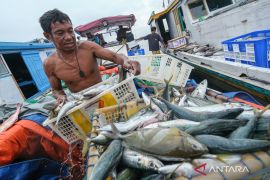"The ownership for (fish) processing industry can be 100 percent by foreigners (foreign ownership). And in some areas it can get tax holidays, import duties, custom, and other incentives," said Minister Pudjiastuti in a release received in Jakarta on Sunday.
The bilateral meeting was held on the sidelines of the IMF-WB 2018 Annual Meeting in Nusa Dua, Bali, October 12, 2018.
According to Pudjiastuti, the offer of cooperation is a form of appreciation of Indonesia for the decline in illegal fishing violations by Vietnam fishermen in the Indonesian waters over the past few years.
Minister Pudjiastuti said, all this time Vietnamese fishermen were one of the perpetrators of illegal fishing in Indonesia, because many Vietnamese ships and fishermen were arrested for violating the rules.
Therefore, he said, rather than fishing in Indonesian waters that have been banned and declared illegal, Minister Pudjiastuti offered Vietnam to invest and establish factories in the processing sector in Indonesia.
"So, there is no need to fish far into Indonesian territories. It will cause problems. So, just buy it to Indonesian businessmen, process it and then export it to Vietnam," she said.
She said that the method had been successfully carried out by Indonesia and Thailand. After Thailand stopped fishing activities in Indonesia and bought raw materials to Indonesia, Indonesia`s exports to Thailand rose by almost 1,000 percent.
In addition, relations between the two countries also improved. "So we better work together faster and better," she continued.
Regarding this matter, Hoang Van Thang agreed with Minister SusiPudjiastuti. In recent years especially this year, the Vietnamese government has tightened supervision of ships that violate the law and give strict sanctions against the perpetrators.
The aim, she said, was to develop a sustainable fishing industry, especially because Vietnam had just been given a yellow card by the European Union because of the problem of llegal fishing.
Previously, fisheries observer Moh Abdi Suhufan stated that with the phenomenon of the weakening of the rupiah against the US dollar, national fisheries entrepreneurs need to strengthen the penetration of exports to non-traditional countries.
"Stronger penetration into export destinations that have been under-worked so far, such as the Middle East and Africa," Moh Abdi Suhufan told Antara in Jakarta on Friday last week.
Suhufan also wants the government, especially the Ministry of Maritime Affairs and Fisheries to encourage domestic fishermen to consciously fulfill the fishery requirements imposed by Europe and the United States.
This is important, he continued, because food security is currently a global issue that must be considered if one wants to increase competitiveness at a level of international trade.
Reporting by Muhammad Razi Rahman
Reporter: Antara
Editor: Andi Abdussalam
Copyright © ANTARA 2018












